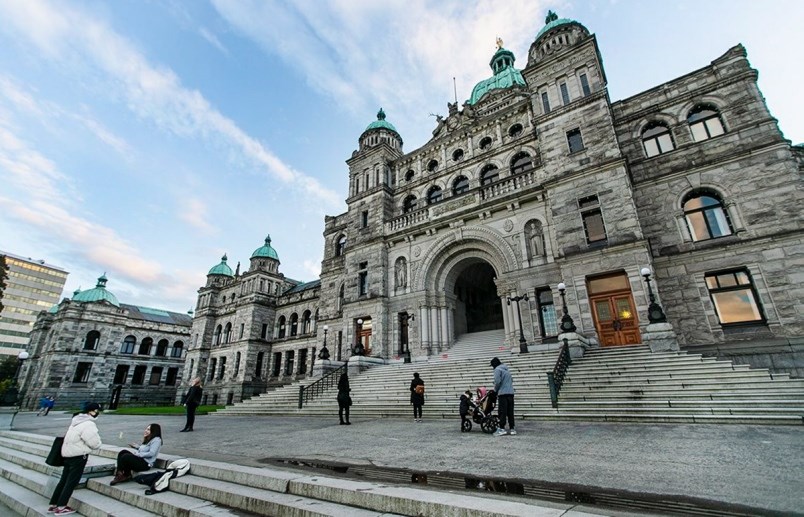Over the past few weeks, British Columbians experienced two events that have the potential to alter the province’s political landscape: The creation of BC United and the appointment of a new leader for the Conservative Party of BC.
In a way, things are roughly the same as they were three months ago. The governing BC New Democratic Party (BC NDP) is still in first place with the support of 46 per cent of decided voters across British Columbia (up two points since February). BC United begins its tenure at 33 per cent, down three points from when they were still called the BC Liberals. The BC Green Party is third with 16 per cent (unchanged), followed by the Conservative Party of BC with four per cent (up two points).
Conservative supporters, who may have expected their party to reach double digits after finding a leader who actually has a seat in the legislative assembly, may be disappointed. The approval rating for John Rustad stands at 18 per cent – significantly lower than the numbers posted by the three people who command the other main provincial parties: Premier and BC NDP leader David Eby (59 per cent, unchanged), BC Greens leader Sonia Furstenau (40 per cent, down two points) and BC United leader Kevin Falcon (38 per cent, down six points).
Previous iterations of the BC Conservatives have polled relatively well between campaigns, only to see their numbers plummet in properly conducted polls – and on election day – because they feature candidates in a limited number of ridings. Their rise in 2012 amounted in large part to dissatisfaction with the Christy Clark-led BC Liberal government.
This time around, with a BC NDP government calling the shots, former BC Liberal voters in 2020 are not flocking to the Conservative Party of BC. Part of the problem lies in the disenchantment of voters who may flirt with the party, only to find out that there is no candidate to back when they have the ballot in their hands.
Research Co. and Glacier Media asked British Columbians about their likelihood to support candidates from each of the four major parties in their constituency. More than three in five British Columbians (61 per cent) say they would consider voting for the BC NDP. BC United reaches 46 per cent of this same question, compared to 37 per cent for the BC Greens and 25 per cent for the Conservative Party of BC. Of course, all parties have the potential of moving these numbers with policies and platforms, but the notion of a provincial Conservative party swiftly capitalizing on the popularity of its federal namesake has not materialized.
Even in a scenario that places a Conservative Party of BC candidate in every provincial riding, BC United is the key opposition party. More importantly, it has a significant advantage in consideration among voters aged 55 and over (52 per cent, compared to 18 per cent for the BC Conservatives).
Regionally, more than half of Southern B.C. residents (53 per cent) say they would consider voting for the party in the next election, suggesting that the base of support, which endured losing campaigns in 2017 and 2020, remains faithful. In the Fraser Valley, where the BC Liberals only secured two of nine seats in 2020, the BC United vote sits at a dismal 36 per cent. The days of easy BC Liberal victories in this region seem long gone.
We still see housing, homelessness and poverty as the most important issue for British Columbians (32 per cent, down two points), followed by health care (28 per cent, down one point). Crime and public safety is now in third place (14 per cent, up nine points), followed by the economy and jobs (12 per cent, down one point) and the environment (four per cent, down two points).
Time will tell if a trend develops, or whether the increase in concerns about public safety amounts to a fleeting reaction to the devastating events that have been widely reported recently. At a time when confidence in the justice system is low across Canada, managing the expectations of British Columbians will be a challenge for the provincial government.
Mario Canseco is president of Research Co.
Results are based on an online study conducted from May 1-3, among 800 adults in British Columbia. The data has been statistically weighted according to Canadian census figures for age, gender and region in Canada. The margin of error is plus or minus 3.5 percentage points, 19 times out of 20.



